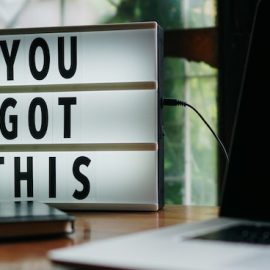
What makes a knowledge product profitable in today’s digital marketplace? How can you turn your expertise into a successful eBook?
In The Boron Letters, Gary Halbert and his son Bond Halbert explain that the process of developing and selling a knowledge product starts with thorough research and understanding your target market. By following their time-tested advice, you can develop unique content that serves your audience.
Keep reading to explore how to transform your knowledge into a profitable digital asset that stands out from the competition.
Knowledge Products
Once you’ve identified a profitable market of potential customers, the next step is to decide what to sell them. Although the authors make it clear that their other marketing advice applies to entrepreneurs looking to sell any kind of product, they particularly recommend developing and selling a knowledge product: valuable information. Gary Halbert wrote and sold how-to “reports” through the mail, and Bond Halbert explains that the modern equivalent would be developing and self-publishing an eBook. Such a product has low overhead costs and is relatively straightforward to produce.
The key to developing a winning knowledge product is research. The authors recommend reading a series of books about a topic relevant to your chosen market. Then, study all the advertising materials you can get your hands on that sell the same kind of knowledge product that you want to sell. Take notes on everything you read and compile them into a comprehensive file for review. By condensing and rewriting the best ideas from everything you read and adding ideas of your own that occur to you, you can create a unique, valuable knowledge product.
| How to Finish a Long-Term Writing Project Writing a book—even a shorter report or eBook—is a daunting long-term project. In Atomic Habits, James Clear notes that one reason it’s so difficult to complete long-term goals like writing a book is that you won’t feel the satisfaction of accomplishing them for weeks, months, or years. With this in mind, Clear recommends making it your goal to establish a productive system of habits rather than focusing on finishing a specific project. This way, you’ll feel satisfied and proud every time you repeat a healthy habit. For example, every time you sit down to write for two hours before work, you can be proud of taking that step toward your goal. When writing nonfiction, experts also recommend turning your research into a process of discovery that shapes your final product. As you accumulate information in a file, you may find that you’ve been taking many more notes on a particular subtopic than you expected to. This may indicate that the subtopic is more important than you initially thought, causing you to drastically shift the focus of your project but ultimately yielding a higher-quality knowledge product. Likewise, stay open to unusual sources of information. Although you may have certain sources in mind while researching—for instance, the best-selling books on your chosen topic and the most successful marketing copy—loosely related or random sources may also yield valuable ideas that you wouldn’t have intentionally searched for. |






